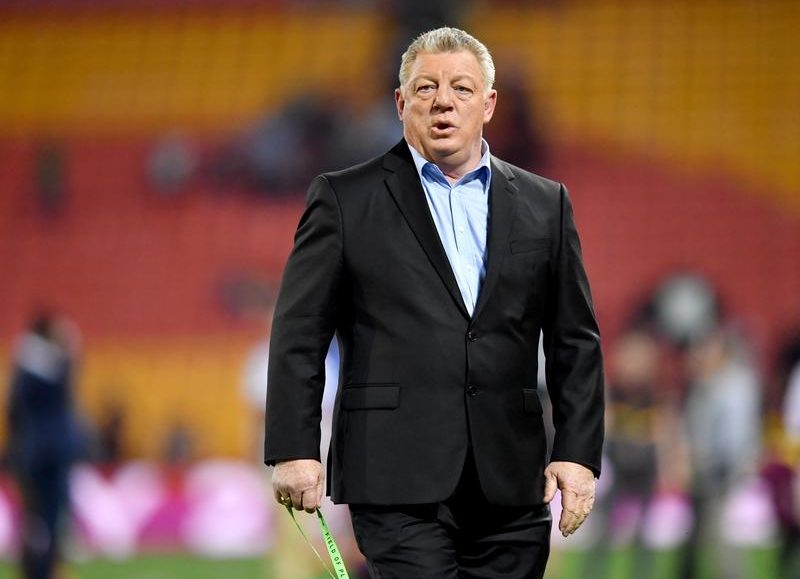
Former Penrith boss Phil Gould has revealed one of the biggest complaints from clubs is the NRL is run by people who do not have history in rugby league.
Following the exit of NRL chief executive Todd Greenberg this week, Gould, who has declared he has no interest in the job, says head office needs more rugby league people running the business.
Speaking on his podcast Six Tackles with Gus, the champion coach and commentator stopped short of saying Greenberg’s replacement needs to have history in rugby league.
However, he highlighted a growing frustration at the NRL from within clubs, which was reported as a major reason behind Greenberg’s eventual downfall.
“One of the criticisms of head office is there is no history at head office,” Gould said.
“There are very few, if any people, who have actually been in this game for an extended period of time who have lived through the difficulties we’ve had in the past.
“That can be both an asset, or a liability at times as well.”
Gould’s comments come days after a News Corp report revealed NRL clubs had lost a combined $31 million in 2019 despite annual grants from the governing body from the lucrative broadcast agreement.
However, in the wake of the coronavirus shutdown, the precarious position of the NRL’s financial position has been laid bare.
Gould said while the Australian Rugby League Commission was established to help run the game like a business, the model should be simplified.
“There’s no doubt as our game brought in more revenue we needed business people, which is why we moved to a commission.
“We felt that these people, having been successes in their own life in the business world, could guide our game,” he said.
“But the system just hasn’t worked like that, unfortunately.
“It hasn’t produced the results… we’ve tried to make it too difficult.
“It’s football, it’s not BHP. This is not the NAB (bank), this is a football competition.
“It should be really simple.To look after our current, our future, and to respect our past.”
While the NRL is considering major changes to the business for a sustained future, Gould said the game’s powerbrokers should consider giving more power to clubs.
“Our games revolve around the logos and these jerseys, its histories and the colours, the rivalries. It’s the rivalry that drives this,” he said.
“It’s the tribalism in the fan base that love their colours and hate the opposition and that’s what sells our game, that’s why it is the popular sport that it is.
“That’s what people cheer for. They don’t wave a flag with the NRL logo on it.
“It can be so many things, this game, but at the core of it, it’s a rugby league football competition and we’ve just made it very difficult. A lot more difficult than it needs to be.”




